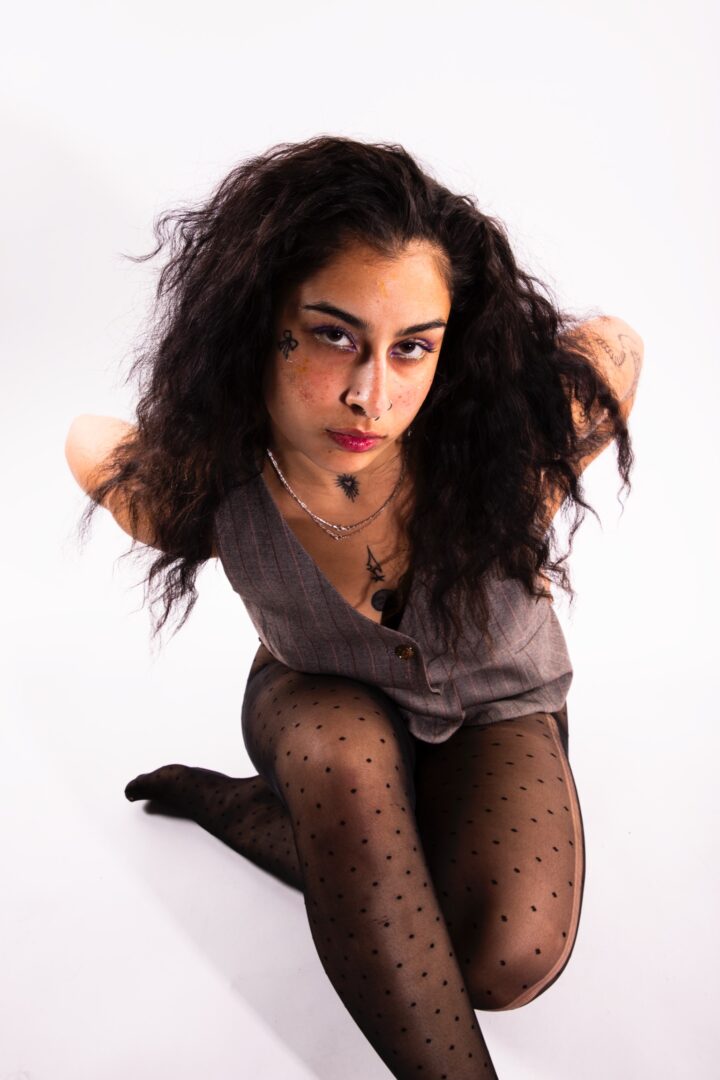Alright – so today we’ve got the honor of introducing you to Aya King. We think you’ll enjoy our conversation, we’ve shared it below.
Aya, so great to be with you and I think a lot of folks are going to benefit from hearing your story and lessons and wisdom. Imposter Syndrome is something that we know how words to describe, but it’s something that has held people back forever and so we’re really interested to hear about your story and how you overcame imposter syndrome.
Something I have learned is that focusing on the end product is not a productive way to go about making art. That is often what happens with imposter syndrome; you see the end products of your peers, and yours isn’t as ‘good’. I think we often forget to remember WHY we are even creating something in the first place… Your job is not to produce what everyone else is producing.
Understanding how to appreciate the process has been very huge to me. It has helped me to create with more intentionality, and has also helped me to stop doubting myself and my work.
In addition, I have found that surrounding myself with people who support me through every step of the process has been extremely helpful. I rely on my community a lot; we need connection, and finding people to create with, ideate with, or just exist with is so essential.

Thanks for sharing that. So, before we get any further into our conversation, can you tell our readers a bit about yourself and what you’re working on?
I am currently studying Graphic Design, and minoring in Fashion Design.
My Graphic Design studies gave me more exposure to photography, which I thoroughly enjoy. I enjoy collaborating with my friends on creative editorial shoots, taking self-portraits, and shooting dance. I have a lot of fun in Photoshop, and will occasionally physically manipulate images to create compositions. I hope to creative direct and shoot editorial in the future, combing my love of fashion with graphic design.
Outside of my studies, I dance – I indulge in contemporary, hip hop, and house. I perform, battle, and teach, and I hope to continue that after graduating. My biggest goal dance-wise is to travel overseas to Amsterdam’s Summer Dance Forever to battle. Until then, I have been focused on performing, making visuals, battling locally, and collaborating with the community on projects.
I have dedicated this school-year to one big dance project- I have been working with a very dear friend, who is also a local dancer, on a solo-piece for a show she is curating called ‘Vessels in Red’. The show will take place May 16 at Urban Arts Space.
I enjoy taking elements from every style I have studied; this piece will combine contemporary, ballet, waving, and krump. This piece in particular has motivated me to try new things and push my body. I have had to do extra strength trining and conditioning, as well as freshen up on some technical skills. It has been such a wonderful process, and I am excited to share this piece.

Looking back, what do you think were the three qualities, skills, or areas of knowledge that were most impactful in your journey? What advice do you have for folks who are early in their journey in terms of how they can best develop or improve on these?
These are all very blunt pieces of advice that I am still learning to apply to my work…
1. Comparison will kill your craft; you are not here to make what everyone else is making.
Your art should be authentic to you. Stop doing what everyone else is doing.
2. Art does not have to be ‘good’; it has to be felt.
I had a professor ask the class “what makes art ‘good'”. A lot of folks brought up technical skill, composition, and that people like it.
We then discussed the idea of people taking offense, hating the art, or finding it disturbing. This happens a lot with political art; it isn’t always made to be beautiful, it’s there to deliver a message. We came to the conclusion that ‘good’ art is art that makes someone feel something, whether it is a good or bad feeling. I have carried that with me since.
3. Being open to failure is necessary.
Make art that sucks. Make the worst art of your life and then just throw it away, nobody has to see it. Make the mistakes, grow from them, learn from them, move on.
It’s okay to be messy.

To close, maybe we can chat about your parents and what they did that was particularly impactful for you?
My mother put me in tap classes at a very early age, and to me it was random. I didn’t enjoy sports too much, and was extremely shy. She definitely made good choice with dance, I believe it helped me with my social anxiety. I picked up on it very quickly and then decided to try ballet, jazz, contemporary, and hip hop.
I fell in love with every style of dance; I had a lot of trouble putting my emotions into words, and dance really helped me find my voice in a different way.
A core memory of mine is begging my mother to buy a big piece of wood so I could tap dance in the house. I would get dressed up and put on performances for her. Occasionally I would learn choreography from Disney movies. Even today, if I get anxious or nervous at an event, I always think about how happy little me would have been to dance for my mom. Her endless support has really stuck with me.
Contact Info:
- Website: https://ayameking.myportfolio.com/
- Instagram: @idfwaya



Image Credits
Annie Harris
Kai Gordon
so if you or someone you know deserves recognition please let us know here.




